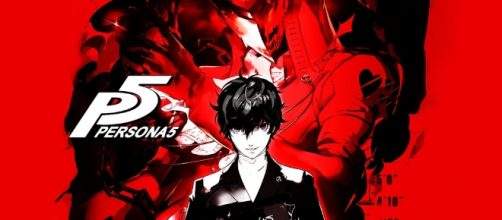"Persona" is one of the most popular JRPG franchises of all time, with Atlus's most recent addition, "Persona 5", receiving critical acclaim and a positive fan reception. With the announcement of three side games; "Persona Q 2", "Persona 5: Dancing Star Night", and "Persona 3: Dancing Moon Night", it is a good a time as any to take a look at all the spin off titles released over the years.
6) 'Persona 3: The Night Before'
Discontinued in 2008, "The Night Before" was a free to play web browser game set the night before the start of "Persona 3". Igor is the only returning characters, and players were handed their own persona after completing a quiz.
Each night, the Tartarus would appear containing plenty of levels and shadows to be conquered. "The Night Before" was only available in Japan.
5) 'Persona Ain Soph'
After "The Night Before" kicked the bucket, Atlus launched "Ain Soph"; another free to play browser game. This follow up included an improved storyline and added a few new mechanics including the ability to fuse personas. As a precursor to modern free mobile games, each battle would consume some of the player's stamina and could only be reset the following day.
4) 'Persona 4 Arena'
Developed by Arc System Works, "Arena" sees characters from the third and fourth game in the franchise unite for an entirely new story. For a fighting game, there is a decent amount of content, with a story for each of the 12 playable characters.
Unfortunately, the plot falls short of the high standards set by the series, with the returning characters failing to show any progression from the events of their respective games. The gameplay is fine, although Arc System Works have done better.
3) 'Persona 4: Dancing All Night'
"Dancing All Night" is why fans are excited for the two rhythm side games that have just been announced.
Before it was released, nobody would have believed that this type of game would fit in so perfectly within the "Persona" universe. The gameplay is genuinely addictive and challenging; however, it is the fantastic story that surprised most people. The music industry was largely left untouched by Atlus, so the shift in focus towards this part of culture allowed "Dancing All Night" to develop its own unique identity.
2) 'Persona 4 Arena Ultimax'
Despite the name suggesting that "Ultimax" is just a complete version of "Arena", this is actually a sequel to Arc Systems Works' 2012 release. Improving on the solid foundation of "Arena", "Ultimax" provides a continuation of the narrative started in the previous game. Instead of a story for each character, the plot is divided into two separate episodes that follow a group of characters. "Arena Ultimax" does exactly one would expect from a sequel: it is bigger, bolder, and considerably more refined.
1) 'Persona Q: Shadow of the Labyrinth'
Once again combining "Persona 3 & 4"'s cast, "Shadow of the Labyrinth" is the closest side game to the main franchise. An RPG for the 3DS, players traverse a seemingly endless labyrinth in first person perspective and battle shadows using a turn based system.
There are 20 playable characters, and changing them around leads to a new set of dialogue options, which tend to be on the humorous side. Compared to the typical "Persona" titles, "Shadow of the Labyrinth" does not take itself anywhere near as seriously, which is reflected in the chibi character design. For fans of the main series looking to try out one of the side games, this would be the safest bet.


